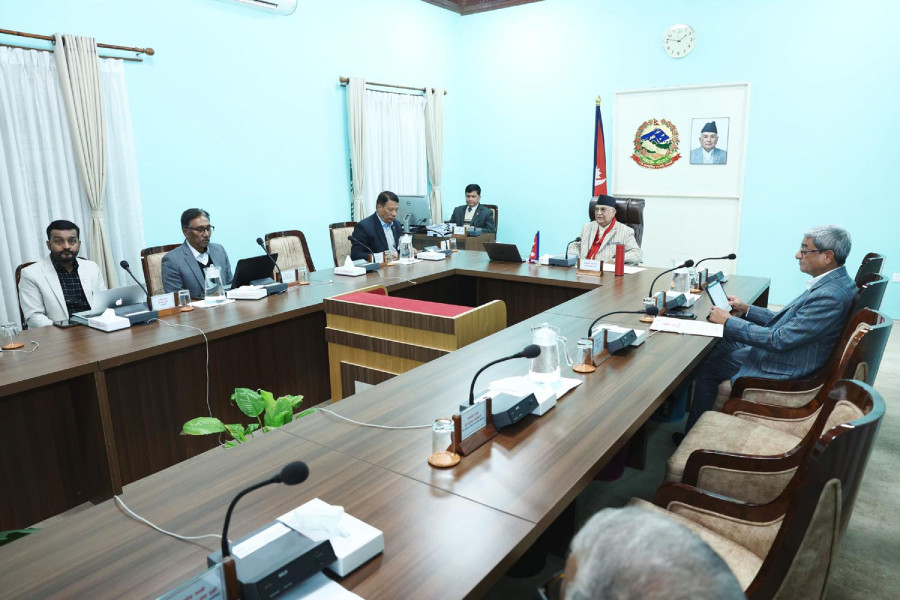Money
Long-pending civil aviation bills get cabinet’s nod
The tourism ministry plans to register the bills in the upcoming winter session of Parliament to split Nepal’s civil aviation body into two entities—service provider and regulator.
Post Report
The Cabinet has given a green signal for the tourism ministry to register the long-pending civil aviation bills in the upcoming winter session of Parliament.
Two bills—Civil Aviation Authority of Nepal Bill and the Air Service Authority of Nepal Bill—propose splitting Nepal’s aviation body into two entities—service provider and regulator—a condition for Nepal to be struck off the European Commission’s air safety list.
The bills passed by the cabinet on Friday were posted on the website of the Ministry of Communication and Information Technology on Monday.
The then Pushpa Kamal Dahal-led government had put the bills into hibernation.
On September 6, after being halted by the Dahal administration for over a year, the draft civil aviation bills made into the KP Sharma Oli Cabinet’s agenda.
Since 2007, successive governments have proposed plans to end the regulator’s dual role. However, the bills have been languishing in obscurity, although they are vital to ensuring safe aviation in Nepal.
Passing the civil aviation bills would establish an independent regulator and remove Nepal from the European Commission’s air safety list, which has caused immense damage to Nepal’s tourism and put a spotlight on the country’s terrible aviation safety record. In December 2013, the European Commission banned all Nepali airlines from flying into the 28-nation bloc.
Tourism Minister Badri Prasad Pandey tabled the bills at the Cabinet on September 6 after the law and finance ministries approved their drafts.
When a bill is presented, the Cabinet approves the draft legislation and its introduction to Parliament.
Nepal has a terrible aviation safety record—eight crashes—six fatal ones—taking place over the past two and a half years, killing over 100 people.
Lawmakers have raised concerns about the government’s delay in implementing the new law, which aims to establish an independent civil aviation regulator.
Tourism ministry officials say this is the fourth time they have sent the bills to the Cabinet since they were passed by the upper house in 2021. But every time, the government changes, and the bills return.
On July 16, 2023, two months before the European Union Aviation Safety Agency (EASA), the European authority for aviation safety, planned a safety audit of Nepal’s aviation system, the tourism ministry sent the draft bills to the Cabinet, seeking its ‘approval in principle’ to table them in Parliament.
On August 2, 2021, the upper house unanimously passed the two aviation bills, which had been languishing for a year and a half as political squabbling engulfed the country. They were registered on February 23, 2020.
In 2022, in its final audit report, the United Nations aviation watchdog ICAO formally asked Nepal to split the civil aviation body into two entities.
Several aviation watchdogs, experts, and diplomatic agencies have urged Nepal to strengthen its independent regulatory body to ensure safer skies.
The government first announced the proposal in its Three Year Interim Plan (2007-08 to 2009-10), which stated, “In the context of the completion of the study on the institutional strengthening of the Civil Aviation Authority of Nepal (CAAN), which has been working as the service provider in civil aviation, airport operator and regulator; implementation of doable recommendations suggested by the report is being considered.”
Since then, every periodic plan and policy, including the annual budget, has prioritised separating the civil aviation body. But the plan has yet to be implemented.




 10.12°C Kathmandu
10.12°C Kathmandu














